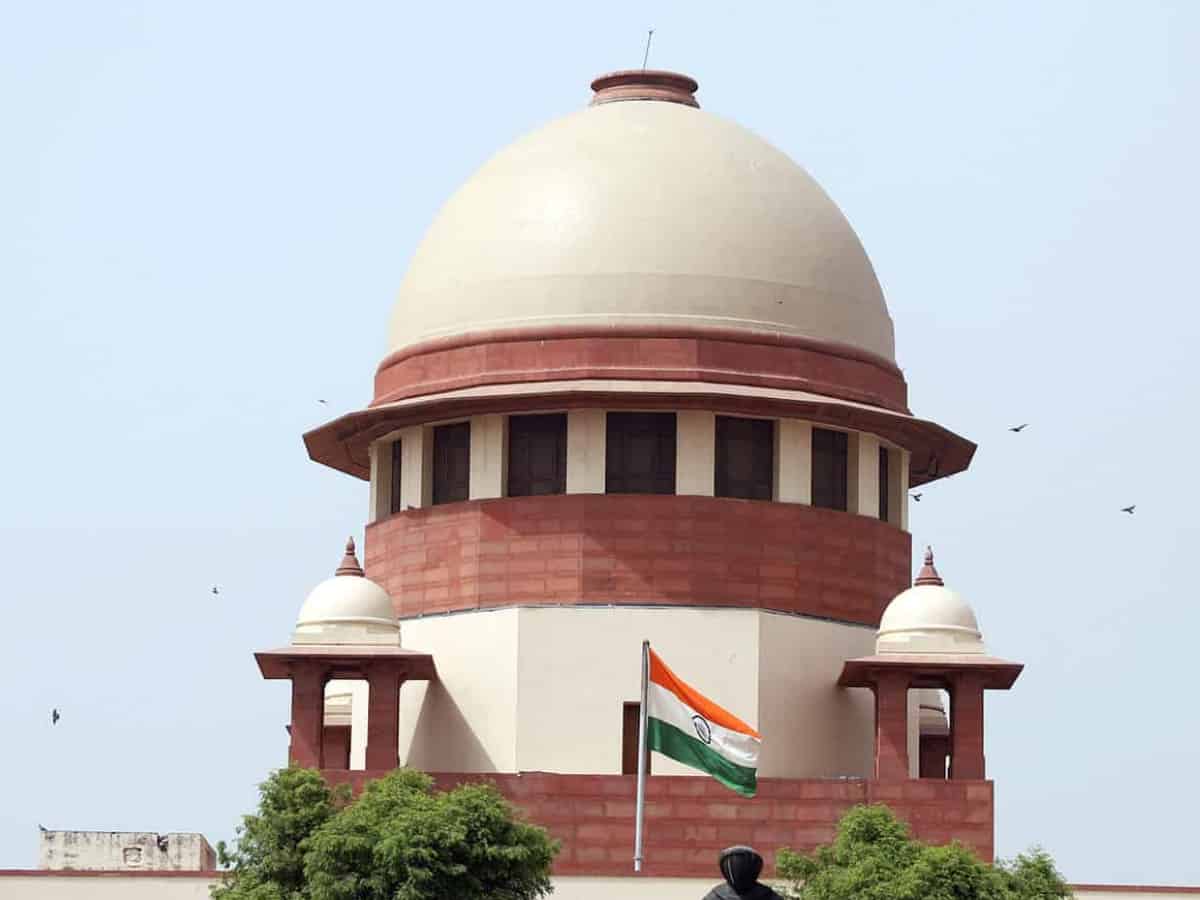
New Delhi: The Supreme Court has said that it is the bounden duty of any State to ensure that the lives and properties of its citizens and other persons are at all times protected.
It said that every attempt which succeeds at the hands of anyone “whereby the efficacy of criminal law is diluted, will remove the very edifice of the rule of law fatally”.
A bench of Justices K M Joseph and B V Nagarathna made these observations while deciding a petition seeking to transfer a criminal case pending before a Jhajjar court in Haryana to a court in Delhi.
The transfer petition has been filed by 38 people of Jhajjar, whose properties were allegedly vandalized during 2016 agitation by members of the Jat community who were seeking reservation in government jobs and educational institutions.
It is the case of the petitioners that during this agitation, the members of Jat community vandalized and committed acts of arson which allegedly caused huge irreparable damage to them by setting their houses, godowns and other belongings on fire.
The petitioners led by one Sunil Saini sought transfer of the case on the ground that due to an advocate who is alleged to be very influential and had remained President of the Bar, couple of material witnesses have been forced to turn hostile as well as material documentary evidence has not been placed on record.
Counsel for the petitioners contended that they had an application under Section 319 of the CrPC to summon the said advocate and his son but their application was not countersigned by the public prosecutor of the case and therefore they had to knock at the door of this court to get their case transferred to another state so that interest of justice is sub-served.
The bench, in its recent verdict in the matter, did not transfer the case on the ground that 42 witnesses have already been examined but said that the matter requires that some observations and directions be passed.
“The State exists on the basis of implied consent of the Governed. The principal reason for people to come together under the organization of the State is the fundamental principle that the State will be in a position to always protect the lives and properties of the citizens. This is the fundamental unalterable premise for the creation, existence and preservation of any civilized State. It is all the more so, when the State is functioning under a written constitution which guarantees fundamental rights such as ours,” the bench said.
The top court further said, “It is accordingly that rule of law is rightfully treated as part of the basic structure of the Constitution. It is the bounden duty of any State to ensure that the lives of its citizens and other persons are at all times protected. The same goes for their properties.”
The bench added that this is the elementary function of the State but “we are not at this stage called upon to deal with the duties of the State with the mantle of a welfare State falling upon it. Even if this indispensable function to constitute a State is not performed, it would be a lamentable state of affairs”.
It said that the principal mechanism for vindicating the rule of law and upholding the rights of the citizens is the judicial branch of the State.
“One of the fundamental methods by which rule of law is preserved consists of sanctions of which the criminal law is the principal branch. The criminal courts must be allowed to function in a manner by which at the end of the day the guilty are punished and the innocent are exonerated,” it said.
The top court further said that the role of the public prosecutor in all of this is paramount and he is duty bound to always act in a fair manner; not of course, to secure conviction by hook or crook but at the same time, it is his duty to fearlessly adduce evidence so that those who are guilty do not get away scot free.
“Unless this is done, it is very likely that the common man will cease to have faith in the very functioning of the State itself. It is, therefore, integral to the upholding of the integrity of the State itself that the access to justice which is also comprehended in the principle that an offence is committed against the State and the State therefore prosecutes the offender is always borne in mind,” the bench said.
The top court said that it is, therefore, of the utmost importance that in the case in hand, the Special Public Prosecutor who has been appointed will hopefully uphold the highest principles and play the difficult role so that while the innocent are not convicted, the guilty do not escape due punishment.
The bench noted that the Special Public Prosecutor for the case has been appointed only recently and not being unmindful also of his credentials which have been brought to court’s notice, at this stage “we are not persuaded to direct that another person be appointed in his place. However, this is not to be the end of the destiny of this case”.
It said that it will be open to the petitioners to approach the Director of Prosecution in case they believe that even the Special Public Prosecutor appointed is not discharging his duties in a fair and impartial manner.
“It is thereupon for the Director (Prosecution) to look into the matter and take appropriate steps. As far as protection to the witness is concerned, it will be open to the petitioners to move the presiding Judge or Special Public Prosecutor or the Superintendent of Police of the concerned district seeking protection in which case needful shall be done in accordance with law,” the bench directed.
